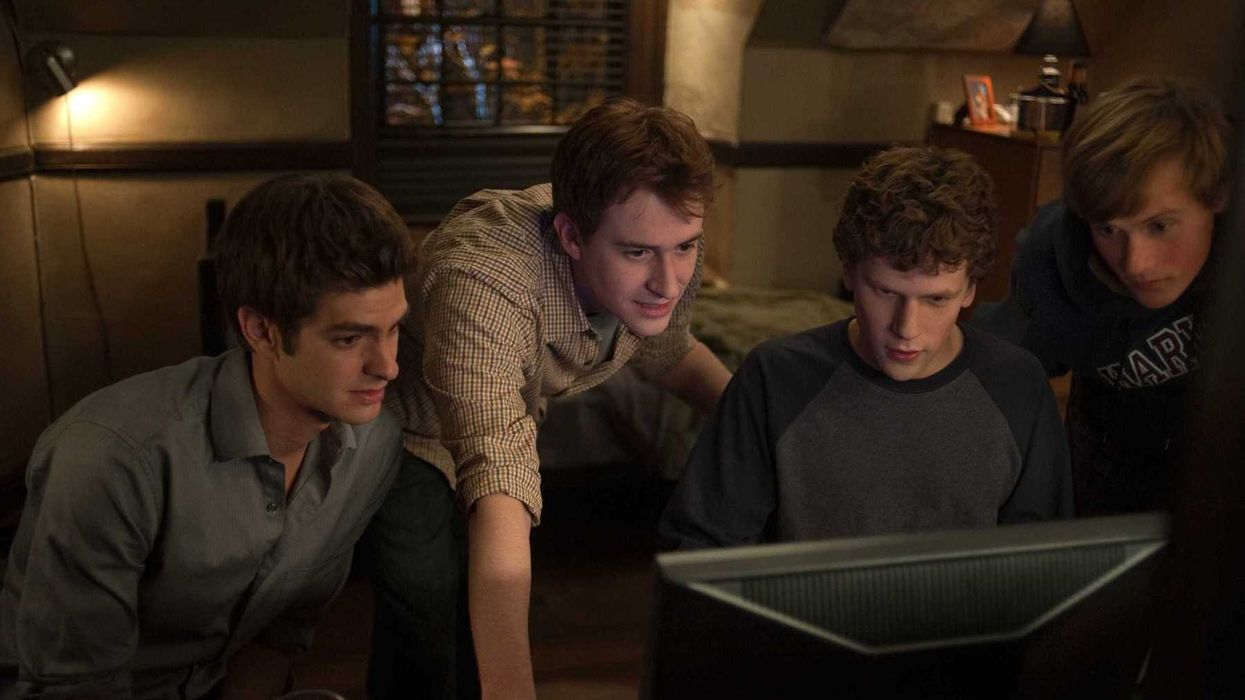3 Ways Aaron Sorkin Writes 'Musical' Dialogue
Great dialogue is like music to our ears. How does Sorkin make it sound so good?

The best dialogue sings. That's what we say right? When I read a magical screenplay or see a magical movie, the dialogue sings to me. And it sings my favorite song. It hits every note and the chorus kicks ass.
You know when your dialogue is great and you know when it sounds kind of hokey.
And you certainly know when the dialogue written in a movie or TV show pops off the page or screen and reverberates in your ears.
That's the kind of stuff Aaron Sorkin delivers. From A Few Good Men to Steve Jobs to The West Wing to The Social Network, the guy only plays the hits.
Check out this video from Insider and let's talk after the jump!
3 Ways Aaron Sorkin Writes 'Musical' Dialogue
We all want to write dialogue like Aaron Sorkin. We just do. Yes, it's way more important to define your own voice than to imitate another. But for a second, it's awesome to think about having all that power at your fingertips.
But what if I were to tell you that...you do have that power?
See Aaron Sorkin is great, but he's great because he's doing a few things you're not. Let's look and see using the example of the opening of The Social Network.
Conflict and Tension
We open that scene with one person on the ropes and the other person acting as the aggressor. It's fun because there is instant conflict. Someone wants to enjoy their night and someone else wants to verbally beat them into submission.
Of course, we're automatically interested. And it's not just the speed in which they talk. It's the conflict. We're not sure who we are rooting for but we are rooting.
This creates tension. Tension automatically makes us feel on edge and invested. We want to know the outcome.
These characters are not talking about nothing...they are arguing. So, we don't feel like our time is being wasted.
Callbacks
One of the best parts of this scene is that Zuckerberg is talking so fast that he's actually planting and paying off ideas with callbacks as we go. Referencing points that we covered minutes before. While this makes the character look very smart, it makes the watcher also feel smart. Like we're on his level.
These callbacks give us command of the scene. Not only are we are entertained but we understand what's going on, so our investment goes deeper.
When it's time for you to write, see how you can call back lines in scenes, use them to help the tension and conflict.

Two Different Conversations at Once
Here's my favorite thing about Sorkin that I think we all should be doing. Characters are often having two conversations at once. they have one with the other person in the scene and one subtextually with the audience. In the opening of The Social Network, we are learning that Zuckerberg values stats, has no friends, and is very smart. But the words he's saying do not explicitly say these things.
Instead, he's talking about Final clubs, the SATs, and the number of geniuses in China.
So, what are your characters talking about? What are they doing? What do we need to know about them and how can we boost that?
By allowing them to have two conversations at once.
What are some of your favorite Sorkin movie and TV moments? What are the other writers whose words you envy? Let us know in the comments.
Up next: Get our free screenwriting eBook!
So much of what we're talking about on No Film School when it comes to screenwriting is summarized in our new eBook. It also helps guide you through a 10-week writing plan that will get your script actually finished.
Source: Insider












